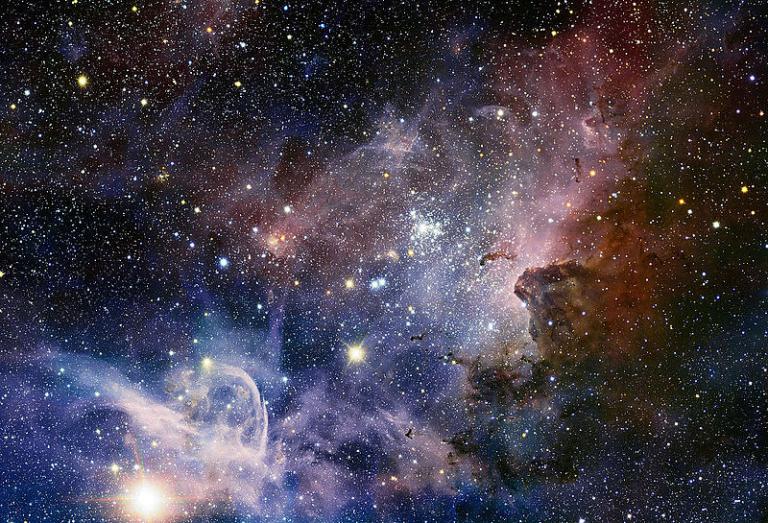
(Wikimedia Commons public domain)
Drawn from Geraint F. Lewis and Luke A. Barnes, A Fortunate Universe: Life in a Finely Tuned Cosmos (Cambridge: Cambridge University Press, 2016):
In 1973, the Australian cosmologist Brandon Carter delivered a now-famous address in Warsaw in which he spoke of what he called the “Weak Anthropic Principle.” “We must be prepared,” he said, “to take account of the fact that our location in the universe is necessarily privileged to the extent of being compatible with our existence as observers.” (16)
What does he mean when he says that our location is privileged?
“Consider a simple example: We usually take air for granted, but the density of the air you are breathing is 1027 times the average density of material in the Universe. Places in the Universe with a density at least as large as the air in a room are cosmically rare. Why would you, a human being, find yourself in such a rare location?” (18)
“We can take this argument further. When Carter says location, he means not just in space but also in time. We expect life to be more likely to arise not just in certain places but also at certain times.
“The early Universe consisted of mostly hydrogen and helium, with virtually none of the elements for creating planets, trees and people. The Universe needs to create several generations of stars to produce large quantities of carbon, oxygen and other elements. As an intelligent being, you should not be surprised to find yourself in a Universe that is almost 14 billion years old, that has had sufficient time to create the material needed to create you. You exist at a privileged time.” (18-19)
In citing these examples of the “Weak Anthropic Principle,” I’m under no illusion that I’m stating the “Strong Anthropic Principle,” which seems, to more than a few scientists and philosophers and theologians, to suggest some sort of “design.” Life evolved where life could evolve, and didn’t evolve where it couldn’t. No big deal. Yet.
But I do think that there’s something significant in recognizing the fact that several generations of stars were required in order to generate the stuff of which our biosphere is made. I occasionally hear arguments from fairly uninformed atheists to the effect that there can have been no design in a Universe that was devoid of life for much of the length of its existence. But it seems that so long an existence was actually necessary before we (and other living things) could come along. So it can’t reasonably be used as an argument against the idea that a divine being (using natural laws) might have intended the emergence of life — any more than, say, one might argue that the careful preparation of a garden to receive seeds and the relatively lengthy time required for their germination indicate that the gardener had no intention of growing plants.











